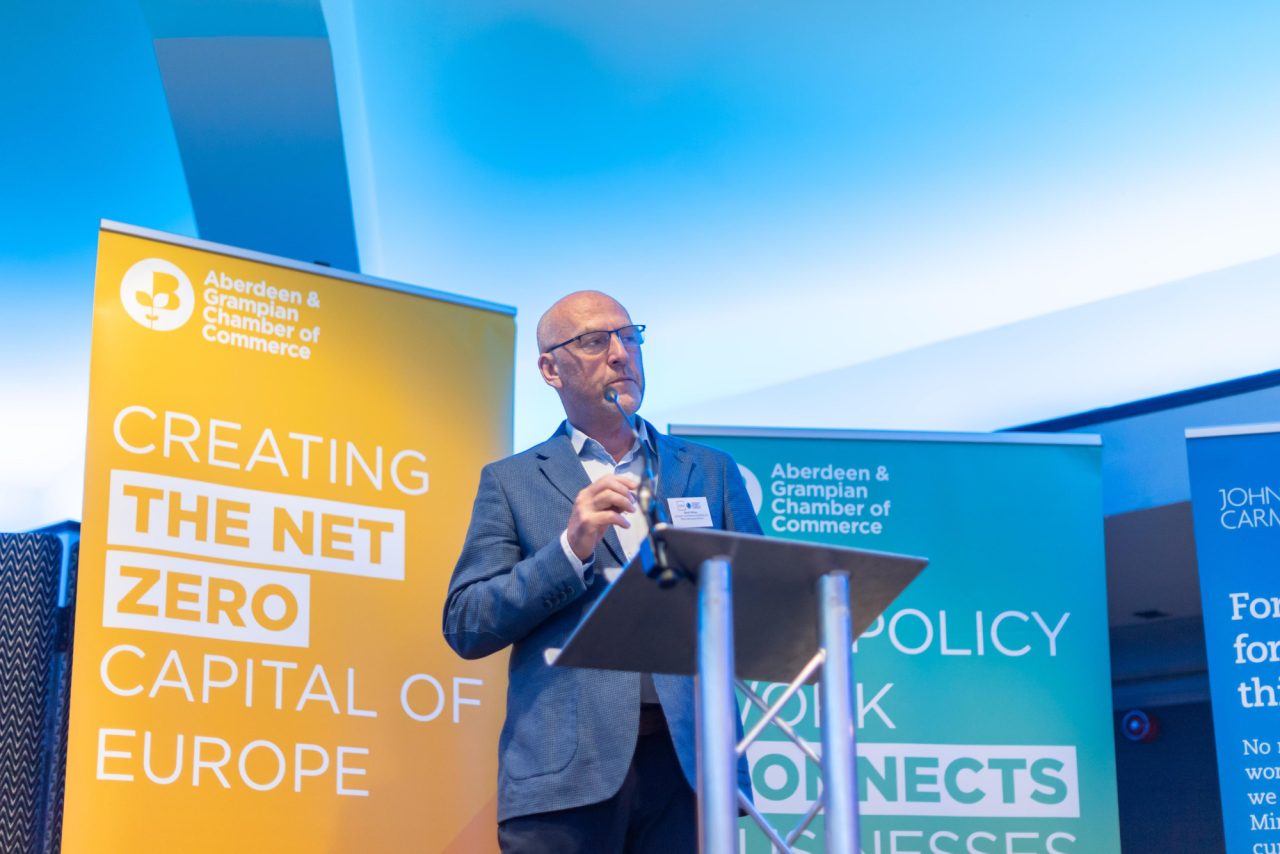Trump’s Scotland visit is an unexpected reminder we still need the North Sea

Since the release of Aberdeen & Grampian Chamber of Commerce’s 41st Energy Transition report in May, the same views have continued to reverberate across boardrooms, industry panels and strategic documents: the UK must accelerate progress on energy transition, investment and long-term policy clarity as soon as possible.
The sentiment is widely shared. But as dialogue on this topic continues across our region and the wider sector, it’s fair to ask - are we genuinely moving forward, or are we simply stuck in an echo chamber?
Ahead of US President Donald Trump’s visit to Scotland this week where it is expected he will meet with Keir Starmer and John Swinney, he has been urged by Aberdeen & Grampian Chamber of Commerce to press the UK government to rethink the windfall tax - this results in a 78% headline tax rate on profits which the Chamber argues is deterring vital investment in the North Sea, a sentiment clearly reflected in the results of the recent survey.
Regardless of personal politics, President Trump’s visit is a reminder of how pivotal a moment this is for the wider oil and gas sector. It highlights just how eager business leaders are to be heard and how hard it can be to generate meaningful engagement on complex energy issues. No one is suggesting that solutions should come from overseas. But the very fact that an international figure is being asked to amplify the message speaks volumes about the level of frustration and urgency across the sector.
Over the past year, that frustration has only grown. The challenges are well understood; delayed infrastructure, falling United Kingdom Continental Shelf (UKCS) investment, policy uncertainty and slower-than-hoped progress on offshore wind. And yet, while the risks are clear, so too is the opportunity. Hydrogen, carbon capture and renewable generation can all play a critical role in the UK’s future energy mix, if the conditions are right.

To the Chamber’s credit, its continued effort to raise these issues, persistently, constructively, and at the highest levels has helped keep the spotlight where it belongs - on delivery.
A recurring theme across this year’s sector events has been the very language of transition. Increasingly, industry leaders are questioning whether “transition” is the right term. It suggests a move away from oil and gas, but the reality is more complex.
Hydrocarbons still provide a major share of the UK’s energy needs, and they continue to support jobs, tax revenues, and innovation across the supply chain.
Perhaps a more helpful way to frame the changes underway would be to describe it as “addition” - an expanded energy mix where renewables, hydrogen, and carbon capture and storage (CCS) grow alongside domestic oil and gas, not in opposition to it. The approach seen in Norway is often referenced – with the country continuing to invest in oil and gas while simultaneously scaling up clean energy technologies. It’s a model based not on political compromise, but on economic and energy realism.
In fairness, there are reasons to be cautiously optimistic. The £126 million CCS project announced recently is a strong signal that existing infrastructure can be adapted to serve future needs. The appointment of Dan McGrail as CEO of Great British Energy also points to a greater focus on delivery and domestic supply chain resilience.
Yet the fundamentals remain challenging. Investment has slowed faster than expected, energy imports - and their associated emissions - continue to rise, and questions persist around long-term skills and supply chain capacity. The private sector is ready to act but is calling for a stable and supportive framework to do so.
The sector isn’t asking for shortcuts or special treatment. What it is asking for - clearly and consistently - is joined-up thinking: alignment between industrial capability and government ambition, clarity on timelines, consistency in regulation and a fiscal environment that encourages long-term planning.

The irony, of course, is that while much of the conversation in recent years has been about the future, the risk is in losing what we already have. If investment continues to stall and skilled jobs continue to disappear, we may find ourselves trying to rebuild a capability in which we once led the world.
Which brings us back to the present. The Chamber’s appeal to President Trump wasn’t about politics, it was about pragmatism. About using every available channel to ensure that a critical national issue is heard. Whether that message lands in Westminster, Holyrood, or Washington is less important than whether it leads to action.
Because ultimately, if this unexpected spotlight helps shift the conversation from repetition to resolution, then perhaps it will have served a useful purpose.
The energy transition is not a slogan, a conference theme or a headline. It’s a process that will take decades, require bold decisions, and depend on meaningful collaboration between government and industry. The UK still has the tools, the talent, and the time to lead - but only if it listens, aligns, and acts.


